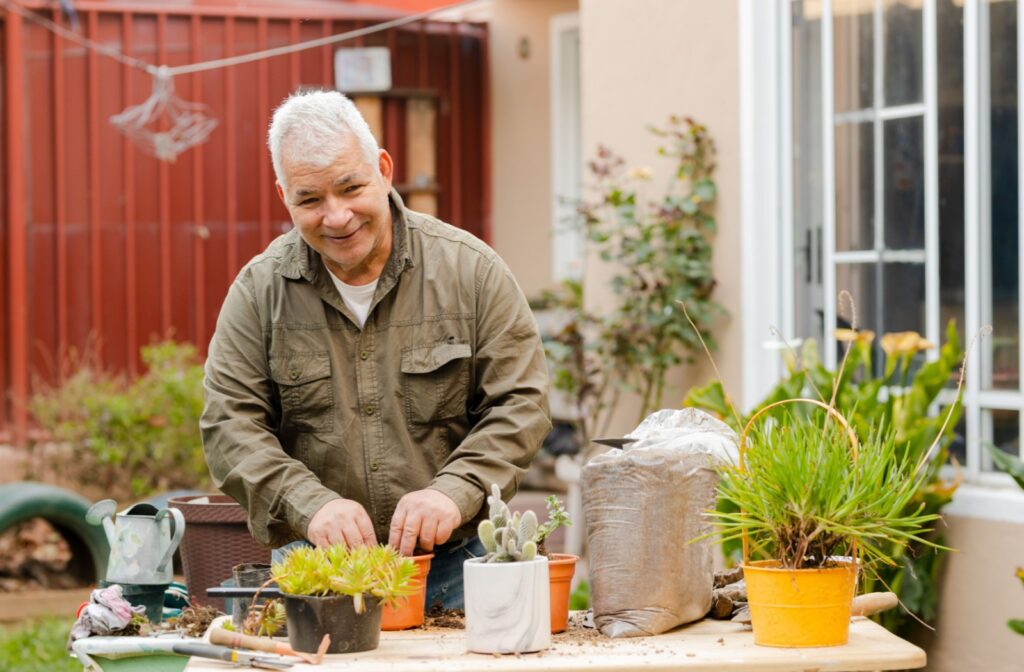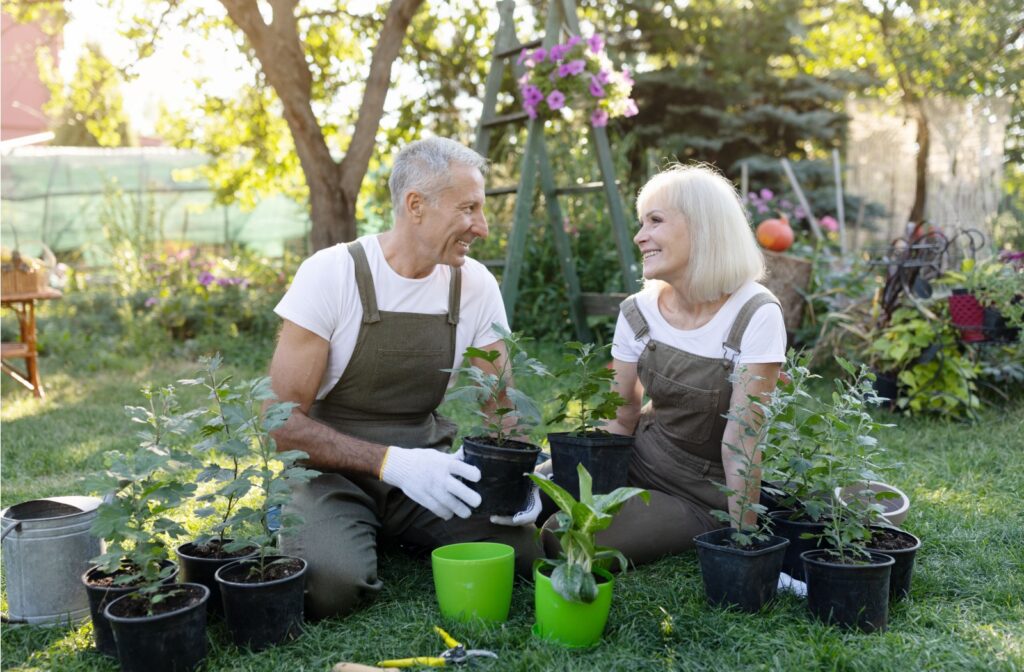Health and wellness should always be prioritized. That’s why it’s essential for older adults to pursue their passions whenever they can. Any activity that brings joy can be a wonderful addition to life. Activities like gardening can be an incredible way for seniors to find a new passion, spend time outdoors, and stay active.
Gardening isn’t just a chance to spend time out in the sun, it also requires physical labor. Digging, planting, weeding, carrying supplies—these all help build muscle strength. By tending to a garden, seniors can take active steps toward improving their physical health.
The Physical Benefits of Gardening
Tending to a garden is no small feat, though it can be quite relaxing. Gardening requires a significant amount of physical labor, which can be extremely beneficial for seniors looking to maintain their health.
Improving Mobility & Strength
Gardening isn’t just about relaxing and enjoying some sunlight. The extensive physical activity required can do wonders for enhancing muscle strength and improving a person’s range of motion.
Digging, planting, and watering helps stretch and stress the muscles. As the actions are repetitive, older adults can slowly and steadily build their muscle strength.
Meanwhile, tasks like pulling weeds or pushing a wheelbarrow act as a form of resistance training, helping to fortify muscles over time. As a person continues tending to a garden, they can build the muscles needed to stay strong.
Boosting Overall Health
Activities like raking or mowing help to get the heart pumping, which can help to boost a person’s cardiovascular health, Plus, the fresh air and sunshine provide exposure to the sun’s rays, which provide vitamin D!
The Mental Benefits of Gardening for Seniors
For seniors dealing with the changes often associated with aging, the mental benefits of gardening can’t be understated. The process of nurturing a garden yields a sense of purpose and accomplishment, both of which contribute to overall well-being.
Stimulating the Mind
The routine decision-making and problem-solving required in gardening are like a puzzle. Some plants can’t be beside each other, some require additional care, and animals may be feeding on certain vegetables—each plant and plot requires specific care.
This mental workout keeps the brain sharp, helping seniors strengthen their brain and memory muscles.
New Learning Opportunities
Gardening is a never-ending lesson in botany, environmental science, and patience. Cultivating a garden introduces information about various plant species, soil composition, and optimal growing conditions, promoting a sense of continual learning and discovery.
Positive Social Interaction
For many, gardening is a social activity just as much as it is a solitary one. Community gardens and shared landscapes offer a space for older adults to connect, share tips and stories, and forge new friendships, combating the isolation often experienced in later phases of life—and this can make a large difference in boosting mental health.
Tips for Safely Gardening as a Senior
When it comes to enjoying any physical activity, safety should always be at the forefront of the mind. Understanding physical limitations is crucial, as it helps prevent potential injuries and lowers the risk of harm.
Make sure that you’re taking proper care and paying attention to potential hazards, and you can enjoy this physical pastime without putting yourself at risk.
The Importance of Proper Garden Tools
Like most activities, proper tools are a must when it comes to gardening. Try to keep an eye out for adaptive tools with longer handles—this can be a significant help if you have limited reach or need to stay seated when gardening.
Ergonomic handles can make a big difference as well. They help alleviate strain on the joints, which can make the experience far more comfortable.
Accommodate Your Capabilities
When thinking about gardening, most people imagine being on their hands and knees, carefully tending to the soil in the ground. However, this isn’t necessarily the case.
You can avoid straining your back or knees by setting up raised garden beds or using lifted containers. These can all be custom-built to a more convenient height, making it much easier to tend to a garden without having to bend over or kneel.
For seniors with mobility concerns or limited flexibility, these custom gardens can make the experience significantly easier on their bodies.
Remember to Stretch & Hydrate
Just like any exercise, gardening requires a warm-up. A few simple stretches can prevent muscle soreness and stiffness after a day in the garden. Additionally, staying hydrated is crucial, especially when the sun is out.
Know Your Physical Limits
Always listen to your body and don’t push yourself beyond what you’re comfortable with. If a task feels too strenuous, take breaks or look for alternative methods. There’s no rush in gardening—it’s a marathon, not a sprint.

The Value of Community Support
Gardening can be an incredible way to spend an afternoon. It offers both physical and mental benefits and can be an extremely rewarding experience.
At The Villages at the River Club, we believe in supporting every one of our residents while they pursue their passions. We know how essential it is to enjoy each and every day, and our team is here to help.
Book a tour with us today, and take the first step toward finding a community that prioritizes your well-being.



